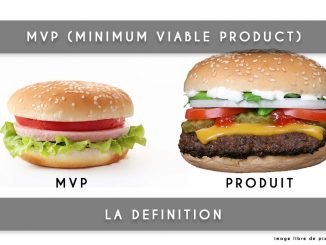
In the realm of product development, terms like MMP (Minimum Marketable Product) and MVP (Minimum Viable Product) are frequently used. While they might sound quite similar, they represent distinct approaches to bringing a product to market. Understanding the differences between MMP and MVP is essential for product managers, developers, and entrepreneurs. Let’s delve into these concepts and explore what sets them apart.
MMP (Minimum Marketable Product)
MMP, which stands for Minimum Marketable Product, is a concept that places a strong emphasis on creating a product with just enough features to make it marketable and appealing to early adopters or a specific target audience. An MMP typically includes features that are more comprehensive than what you’d find in an MVP.
Key characteristics of an MMP:
- Marketability: An MMP is designed to be market-ready, meaning it has enough features and functionality to capture the attention of a broader audience. It targets a specific market segment and aims to satisfy their needs.
- Comprehensive Features: Unlike an MVP, which might have limited functionality, an MMP often includes a broader range of features and capabilities. This is because it aims to meet the requirements of a specific group of users.
- Targeted Audience: MMPs are created with a deep understanding of a particular market segment or user group. They are not intended for a broad audience but rather a niche that values the provided features.
- Iterative Development: While MMPs are more feature-rich than MVPs, they are not the final product. They are released early, allowing teams to gather feedback and make further improvements based on user responses.
MVP (Minimum Viable Product)
MVP, or Minimum Viable Product, is a development approach that prioritizes creating a basic version of a product with minimal features. The primary goal of an MVP is to validate the product concept, gather user feedback, and learn from real-world usage.
Key characteristics of an MVP:
- Minimal Features: An MVP includes only the essential features required to test the product concept. It focuses on core functionalities and omits any additional features that are not necessary for initial validation.
- Quick Development: MVPs are developed rapidly to reach the market as soon as possible. This quick turnaround allows for early testing and validation.
- User Feedback: MVPs are launched to gather user feedback and insights. This feedback is invaluable for making informed decisions on further product development.
- Risk Reduction: By starting with a minimal product, the risk of investing time and resources in a full-fledged product that might not succeed is significantly reduced.
Key Differences Between MMP and MVP
- Scope of Features: The most significant difference is the scope of features. An MMP includes a more extensive set of features tailored to a specific audience, while an MVP has the minimum features required for initial testing.
- Audience: MMPs are aimed at a niche audience with specific needs, while MVPs target a broader user base with the basic functionalities.
- Development Timeline: MVPs are developed quickly to validate the concept, whereas MMPs take longer to create as they aim to meet more comprehensive requirements.
- Market-Readiness: MMPs are considered market-ready, whereas MVPs are designed to be experimental and gather insights.
In summary, while both MMP and MVP serve vital roles in product development, their key differences lie in the scope of features, audience, and the development approach. The choice between the two depends on your product goals, target market, and the level of risk you are willing to take.



Be the first to comment